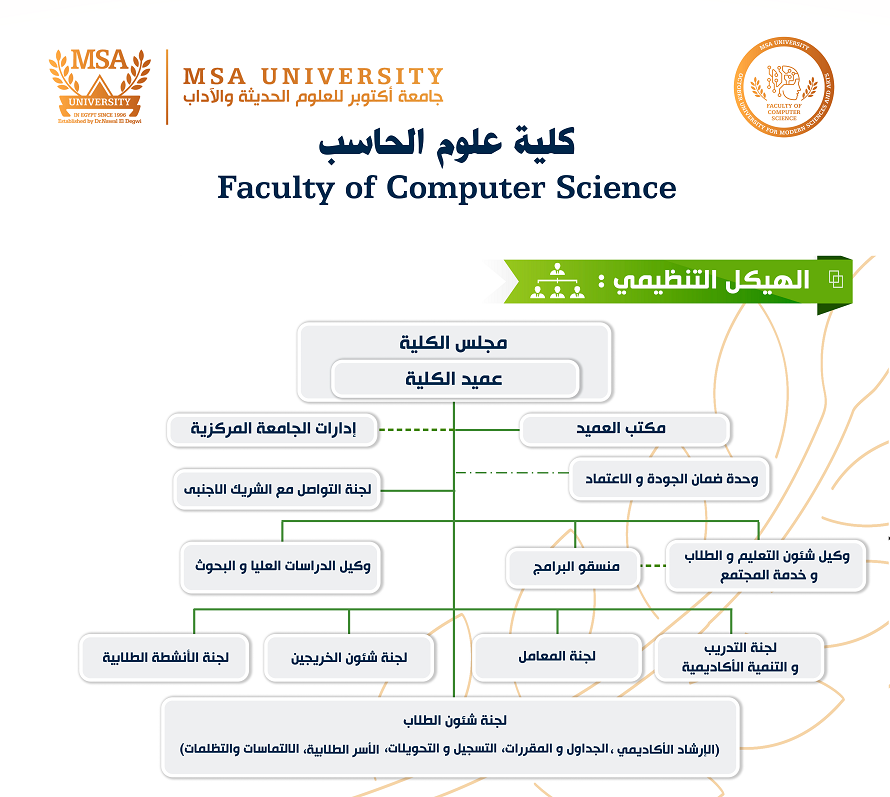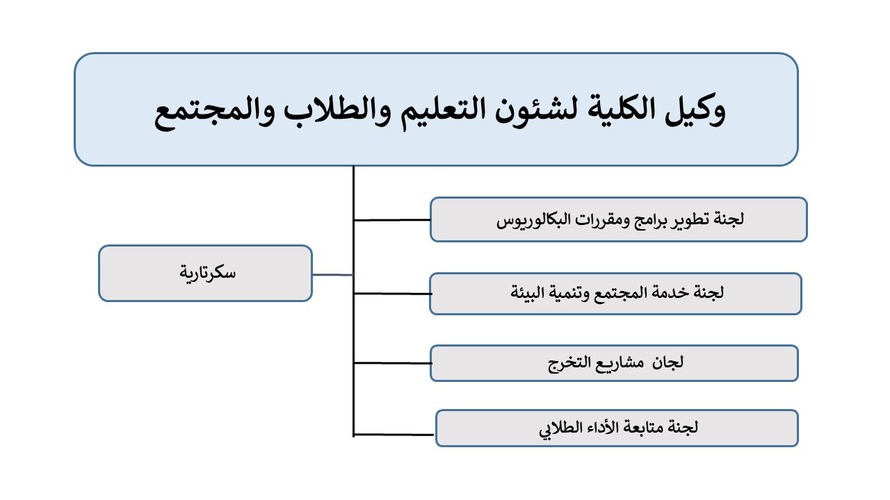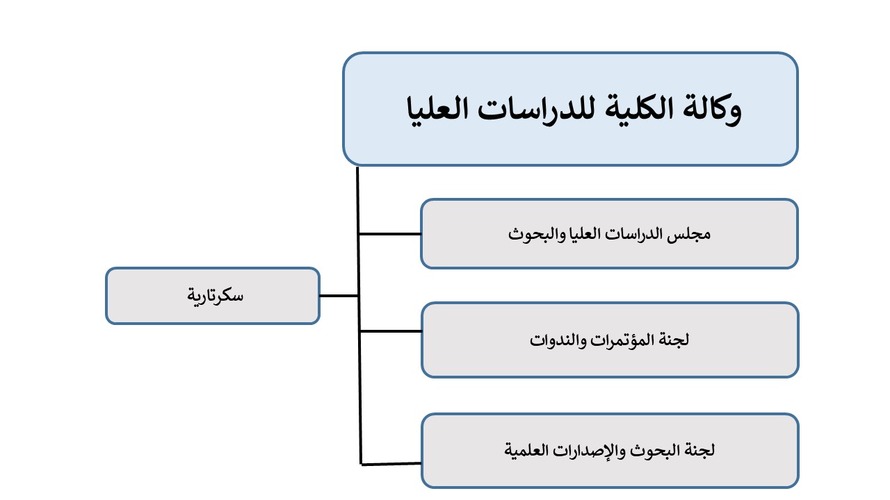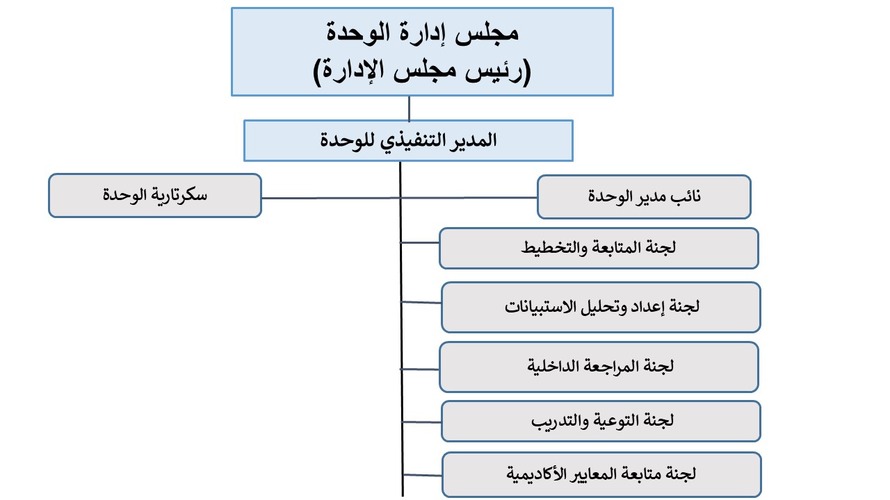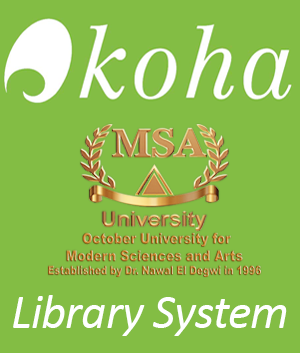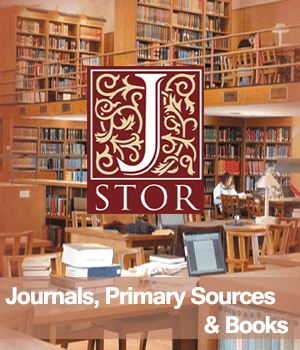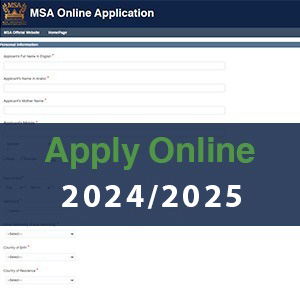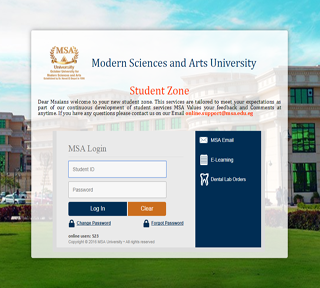Internet Computing (ICP) Course Specification
Download: MSA University - Faculty of Computer Science - Internet Computing (ICP) Course Specification.
Internet Computing Pathway
The Programme provides state-of-the-art high quality education relevant to the local and international markets, offering a unique undergraduate programme with several advanced specializations, complementing programmes of the national universities. The programme aims to train students for lifelong independent learning and provide a versatile route through the computing and web fields.
Career destinations include industry, government or graduate studies and research as:
- Developers; designing and implementing web software.
- Enabler of technology; devising new ways to use computers.
- Researchers; developing effective ways to solve internet computing problems.
- IT Managers; planning and managing organizational technology infrastructure
The Internet Computing pathway develops the knowledge, intellectual and practical skills necessary to equip students for a career in computing.
The Internet Computing pathway further distinguishes its students with specialized knowledge and experience in development techniques for internet computing and intelligent systems.
It provides a versatile route through the computing field to allow students to acquire particular expertise in a wider range of computing subjects. The Internet Computing pathway further distinguishes its graduates with thorough knowledge and experience in the emerging fields of net-centric computing.
Download: MSA university - Internet Computing Four Year Plan.
Programme Specifications Handbook
Download: MSA University - Programme Specifications Handbook of Computer Science 2015-2016 .
Programmes Modules
Download: MSA University - Programmes Modules of Computer Science 2015-2016 .
Programmes Modules Description
Download: MSA University - Programmes Modules Description of Computer Science Faculty 2015-2016 .
Quality Assurance Unit - وحدة ضمان الجودة
رؤية وحدة ضمان الجودة:
تهدف وحدة ضمان جودة التعليم والاعتماد في كلية علوم الحاسب إلى تحقيق الريادة في التميز الأكاديمي والاعتماد في مجال التعليم والبحث العلمي وخدمة المجتمع.
رسالة وحدة ضمان الجودة:
تقدم وحدة ضمان جودة التعليم والاعتماد بالكلية الدعم الفني للنهوض بجودة التعليم من خلال نشر ثقافة الجودة وتحسين الأداء في كافة المجالات التعليمية والبحثية والخدمية في ضوء معايير الهيئة القومية لضمان جودة التعليم والاعتماد، وتتبنى عملية التحسين المستمر والوصول بالبحث العلمي والأنشطة الأكاديمية وخدمة المجتمع إلى الاعتماد القومي والعالمي.
أهداف وحدة ضمان جودة التعليم والاعتماد:
1. تهدف الوحدة إلى تعزيز ونشر ثقافة الجودة في الكلية.
2. تهدف الوحدة إلى تحسين جودة التعليم من خلال تطوير المناهج الدراسية واستخدام طرق وأساليب تدريس حديثة ومطورة.
3. تعمل وحدة ضمان جودة التعليم والاعتماد بالكلية على تقديم فرص لتطوير مهارات أعضاء هيئة التدريس والهيئة المعاونة من خلال التدريب المستمر، ورش العمل والندوات.
4. تهدف الكلية إلى تعزيز البحث العلمي والابتكار في مجال علوم الحاسب، وتشجيع الطلاب وأعضاء هيئة التدريس على المشاركة في الأبحاث العلمية.
5. تهدف وحدة ضمان جودة التعليم بالكلية إلى تطوير أدوات لقياس وتقييم الأداء العام للكلية وتقديم مقترحات لتحسينه.
6. تهدف الوحدة إلى متابعة عمليات التحسين المستمر وخطط التحسين.
7. تسعى الوحدة إلى الوصول للاعتماد من خلال وضع نظام متابعة شامل، وتطبيق المعايير القومية لجودة التعليم والاعتماد في التعليم على مستوى الكلية.
8. تعمل الوحدة على تعزيز التواصل بين جميع أعضاء المجتمع الجامعي للتأكد من تحقيق الأهداف المشتركة.
Rules and Ethics
Attendance Policy: The contact between the staff and student is the most effective means of learning. Class discussions and comments enhance the students’ understanding of the module content providing a new dimension to the learning experience. For these reasons, students are required to satisfy certain attendance requirements. Students who fail to attend 75% of all lectures and tutorials/Labs for a given module are deprived from the final exam and automatically fail the Module. This includes absences for medical reasons and emergencies. Students are required to check with the respective teaching assistants/Student Affairs department as to the number of absents reached in each module.
Late Arrival Policy: Late arrivals disrupt the class and interrupt other student’s concentration. Students are only allowed into the class during the first five minutes. Otherwise, they miss the class and are recorded as absent. During the midterm exams (1.5hrs) students are allowed to arrive up to the first 15 minutes of the exam, while the final examination (3 hrs) students are allowed to arrive up to the first 30 minutes of the exam.
Misconduct Procedures Academic Misconduct Procedures: MSA University complies with the Rules and Regulations of the Ministry of Higher Education in Egypt as per decree 49 for the year 1972, as well as the Rules and Regulations of the Private Universities in Egypt as per decree 101 for the year 1992. All following modifications that have been added from then to date are complied with. MSA students are expected to be honest in their academic endeavours. To falsify the results of one's research, to use the words or ideas of others as their own, to cheat in an examination, or to allow another to commit an act of academic dishonesty corrupts the basis of the academic process. The act of Plagiarism includes:
Where the marker of the assessment suspects that the student’s submitted work is plagiarized or one of the above offences has been committed, the marker shall interview the student establish that an offence has been committed or to demonstrate the plagiarized work and the proportion of the plagiarized work. During this interview, the marker shall give the students the opportunity to present his or her case and mitigating circumstances, if any. Depending on the severity of the plagiarism or the offence being committed, the marker may take one of the following actions:
- Students are reminded of the seriousness of their act and is given a verbal warning. - Students are reminded of the seriousness of their act and are asked to sign a Plagiarism Warning Form (A written warning). - Redo the same assessment or a new assessment within a set deadline. The new mark shall not exceed mark awarded for the offended work, if any. - Redo the same assessment or a new assessment and the new mark shall not exceed the pass mark. - Exclude the plagiarized part of the assessment and mark the work accordingly. - A ward a zero grade to the assessment under investigation.
Probation students are students who fail to achieve CGPA 2.0 (equivalent to C i.e ≥ 60%). Every student has to check his/her CGPA every semester to revise his/her status. Students are informed during their first levels on probation that they should exert utmost effort on raising their CGPA to at least 2.0 (≥ 60%) to avoid being dismissed from the University and to be able to graduate. Probation students are advised to improve their academic standards since students who remain on probation will be dismissed from the university. The numbers of semesters are determined by the Supreme Council of Egyptian Universities. In case of being on probation for:
Spring and summer semesters are counted as one semester. The student is allowed to change major only once. UK CGPA is calculated for only 300, 400 level modules in case of faculty of Computer Sciences.
Software Engineering (SEP) Course Specification
Download: MSA University - Faculty of Computer Science - Software Engineering (SEP) Course Specification.
Software Engineering Programme
Providing distinguished university education in the field of software engineering in partnership with British universities, according to high-quality standards, to prepare graduates who are academically and practically qualified, with the ability to comprehend and utilise modern software engineering techniques and skills.
تقديم تعليم جامعي متميز في مجال هندسة البرمجيات بالشراكة مع جامعات بريطانية وفق معايير عالية الجودة لإعداد خريج مؤهل علميا وعمليا ويملك قدرات الالمام واستخدام تقنيات ومهارات هندسة البرمجيات الحديثة
I am thrilled to have the opportunity to serve as your Program Leader and guide you through your academic journey. As a seasoned software developer and educator, I am passionate about helping you develop the skills and knowledge you need to become successful professionals in this dynamic field.
The Software Engineering Program at MSA University is a thriving and growing program, with a 200% increase in enrollment over the past four years. This growth is a testament to the program's quality, relevance, and the dedication of our faculty and staff.
Our program offers a rigorous and comprehensive curriculum designed to equip you with the latest tools and techniques in software development. Our dedicated faculty members are committed to providing you with the highest quality education and support.
I encourage you to embrace the challenges and opportunities that lie ahead. Engage in your studies, participate in extracurricular activities, and network with your peers and faculty. By doing so, you will not only gain valuable knowledge and skills but also build lifelong relationships.
I am excited to see what you will achieve in your time here at MSA University. Remember, your success is our priority.
Welcome to the Software Engineering Program!
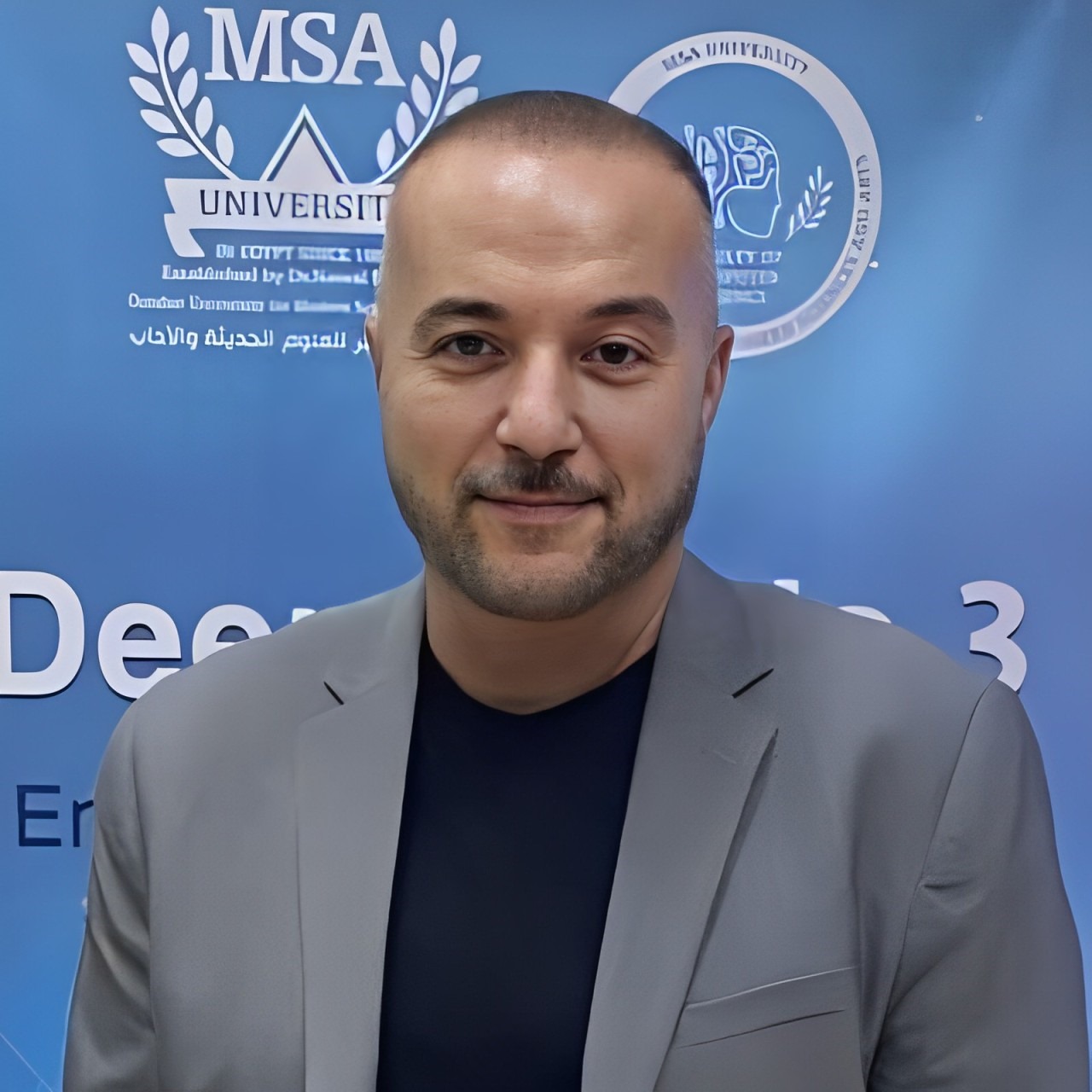
Dr. Mansour has held faculty positions at several prestigious universities, sharing his expertise with aspiring software engineers. His extensive background in software architecture and development, gained and refined through 18+ years of experience in the US, has solidified his reputation as a leading expert in the field. Renowned for his ability to create innovative solutions for diverse industries, Dr. Mansour has served as a consultant for major companies.
Passionate about nurturing the next generation of software engineers, Dr. Mansour is dedicated to sharing his knowledge and experience with students. He is committed to providing them with the tools and guidance they need to succeed in their academic and professional endeavors.
Download: MSA university - Software Engineering Programme Four Year Plan.

